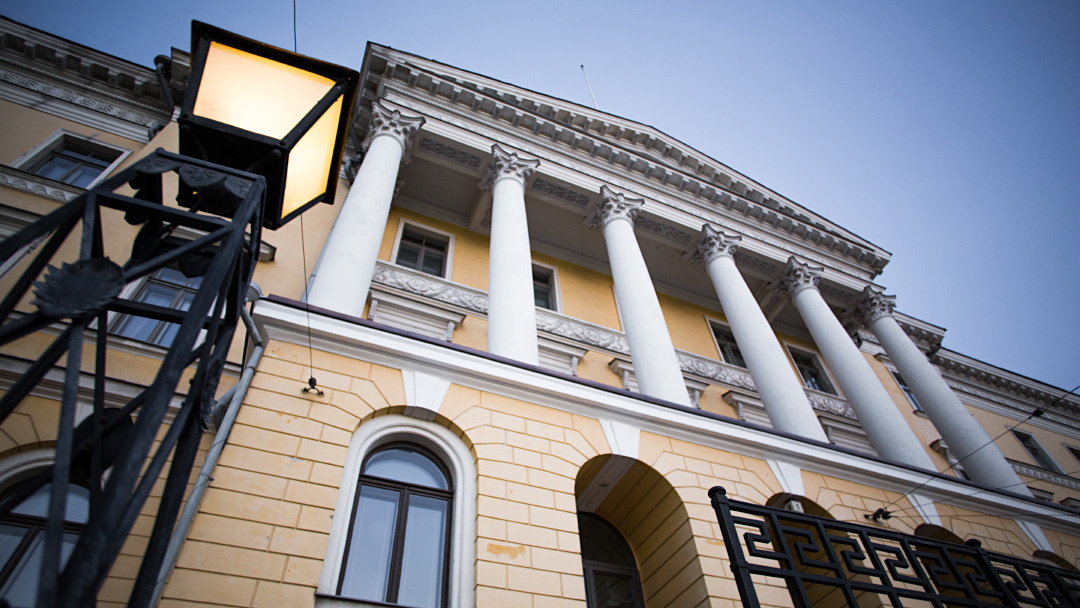The peace agreement that ended the bloody 30-year conflict in Northern Ireland was signed after lengthy negotiations on April 10, 1998.
The Good Friday Agreement is a treaty between the governments of the United Kingdom and the Republic of Ireland on measures to achieve a lasting peace.
Finland played a central role in both the negotiations and the implementation of the agreement. Former Prime Minister of Finland Harry Holkeri During the years 1995-1998 he sat in a group of three led by the senator George Mitchell. This group initially made recommendations that paved the way for peace negotiations and later served as the head of the negotiations. In addition, he was the president Marty Ahtisaari In the years 2000-2001, he helped one of the two leaders of the Arms Control Committee fulfill the peace agreement and oversaw the disarmament of the IRA.
Finland’s central role in negotiating the peace agreement and in working to complete the agreement is highly regarded in Ireland and Northern Ireland. At Queen’s University Belfast, a colloquium called the Harry Holkeri Lecture is organized annually. Among the speakers is Chairman Ahtisaari, Chairman Tarja Halonen And the President of Ireland Michael D Higgins. This year is a former diplomat Ann Anderson who has a long career in the Irish Foreign Administration giving a speech at the symposium.

Former Prime Minister Harry Holkeri (right) served in the office under Senator George J. Mitchell (C) 1995-1998. On the left of the photo is General Jean de Chastelain. Photo: Archives of the Finnish Embassy in Dublin
Ambassador Timo Cantola He describes the peace negotiations as follows: “I was Harry Holkeri’s employee before the actual peace negotiations, and at that time it was not certain that the process could be stopped because they could not come to an agreement as to whether disarmament was a precondition for the negotiation to begin. . . it was formed.” The so-called Mitchell Commission to investigate this issue. In January 1996, the Commission presented its recommendations to open peace negotiations. In my estimation, Holkeri had a major role in the recommendations emphasizing the importance of confidence-building measures in a broader sense than mere disarmament. This subsequently contributed to the success of the negotiations Peace,” says Cantola.
Finland as a peacebuilder
Finland actively continues its mediation activities for peace. Over the past ten years, the State Department has strengthened its long-term peace mediation position both internationally and nationally. Conflict prevention, peace mediation and peacebuilding are increasingly important priorities in our foreign policy. Finland’s extensive peace-brokering experience over the years has been used in addition to Northern Ireland, for example in the Western Balkans and the Horn of Africa, in Aceh and the South Caucasus.
Finland has a lot to offer in terms of conflict prevention and resolution. Because of our history and national strength, we are a trusted and reliable broker. Finland has good experience and examples of successful peace mediation.
Our priorities
-
- Participation of women and youth in peace processes
- Participation of religious and other actors in peace mediation
- Water diplomacy that combines Finland’s water expertise with conflict prevention and conflict resolution
Space must be created for peace mediation through normative action. We are actively working to develop this within the European Union and the United Nations, among others.
Partnerships with civil society organizations are very important, as are activities in multilateral forums. Finland also implements and finances projects that support peace mediation and invests in strengthening national capacity for mediation for peace.
There are no quick results
Mediation for peace is a long-term business that involves many risks and uncertainties. Quick results cannot be expected, and work must be done on several levels by creating opportunities for key people of the parties to dialogue and increase dialogue among citizens. In the field of peace mediation, competition is also fierce. Finland’s goal is to create added value through its operations and to contribute to sustainable conflict solutions.
The Peace Mediation Center established in the Political Department of the Ministry of Foreign Affairs enhances Finland’s competence and capacity in the area of mediation for peace and coordinates both the Ministry of Foreign Affairs’ own activities and cooperation with other actors.

“Extreme tv maven. Beer fanatic. Friendly bacon fan. Communicator. Wannabe travel expert.”





More Stories
Brexit brings economic uncertainty – Finland worst hit in the long run – Hufvudstadsbladet
Britain wants closer ties with the European Union.
Britain may already be out of recession